2013 - the year in review: Timeline of major news stories
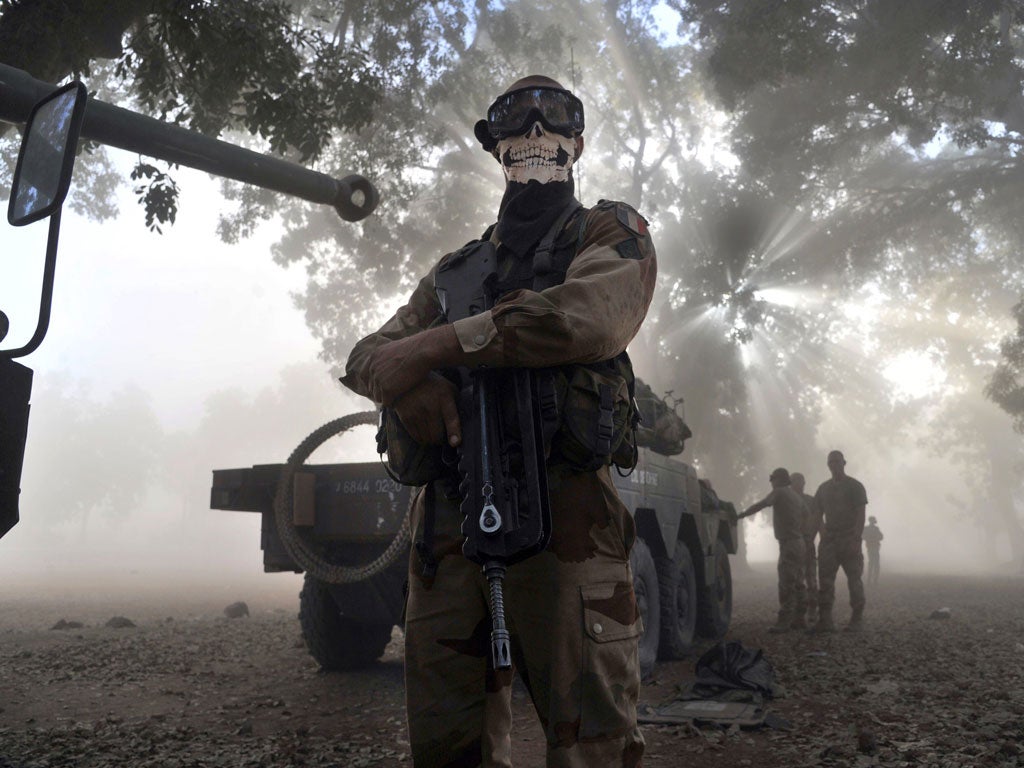
January
1 January: UK assumes presidency of G8 group.
2 January: Barack Obama signs the American Taxpayer Relief Act of 2012 to prevent the US from falling off a “fiscal cliff”.
2 January: rail fares in the UK rise by an average of 4.3 per cent.
4 January: Malala Yousafzai, the Pakistani schoolgirl who was shot by the Taliban in October 2012 because of her campaigning for women’s right to education, is discharged from Queen Elizabeth Hospital, Birmingham.
4 January: The Church of England drops its prohibition on gay clergy in civil partnerships becoming bishops – if they remain celibate.
11 January: Following a UN resolution in December 2012, France dispatches troops to Mali in a bid to oust Islamist militants from the north of the country.
12 January: Jimmy Savile is named as the UK’s most prolific sex offender. A report by the police and the NSPCC into ongoing investigations into the late disc jockey mention 214 alleged acts by Savile that have been recorded as crimes. Some are said to have been carried out in hospitals, hospices and schools, and at the BBC.
15 January: The HMV chain of high street music stores goes into administration, after 90 years of trading.
15 January: Tesco, Aldi, Lidl, Iceland and Dunnes withdraw various beef products after the Food Safety Authority of Ireland informs them that they are contaminated with horsemeat.
16-20 January: Islamic militants take over a BP natural gas facility at Amenas in Algeria. More than 800 workers are held hostage. By the time special forces regain control of the site, at least 39 hostages have been killed, along with a security guard and 29 militants.
21 January: Barack Obama inaugurated for his second term as US president
22 January: Lindsay Sandiford, from Redcar, Teesside, is sentenced to death in Indonesia after being convicted of smuggling cocaine.
23 January: David Cameron announces that the Conservative manifesto for 2015 will promise an in-out referendum on EU membership by 2017.
28 January: A Government bill to redraw constituency boundaries before the 2015 general election is defeated in the House of Commons.
February
1 February: April Casburn, a former Metropolitan Police detective, is jailed for 15 months for attempting to sell information to the News of the World related to the investigation into the phone hacking scandal..
4 February: A skeleton thought to be that of King Richard III is discovered under a Leicester car park. Subsequent tests eventually establish it to be the case.
4 February: Chris Huhne, former energy minister, pleads guilty to conspiracy to pervert the course of justice.
5 February: The House of Commons votes by 400 votes to 175 in favour of legislation to introduce same-sex marriages.
7 February: A report by the Australian Crime Commission reveals widespread use of illegal drugs within professional sport in the country.
11 February: Pope Benedict XVI announces that he will resign on 28 February. He is the first pope to resign since Gregory XII in 1415.
12 February: Court of Appeal rules in favour of Cait Reilly, a university graduate who claimed that being required to work unpaid at Poundland under the government’s back-to-work programme was unlawful. The Supreme Court will uphold the decision in October.
14 February: Oscar Pistorius is charged with murder. The South African athlete is charged with the fatal shooting of his girlfriend, model Reeva Steenkamp, in an incident in his home in Pretoria. His trial is eventually set for March 2014.
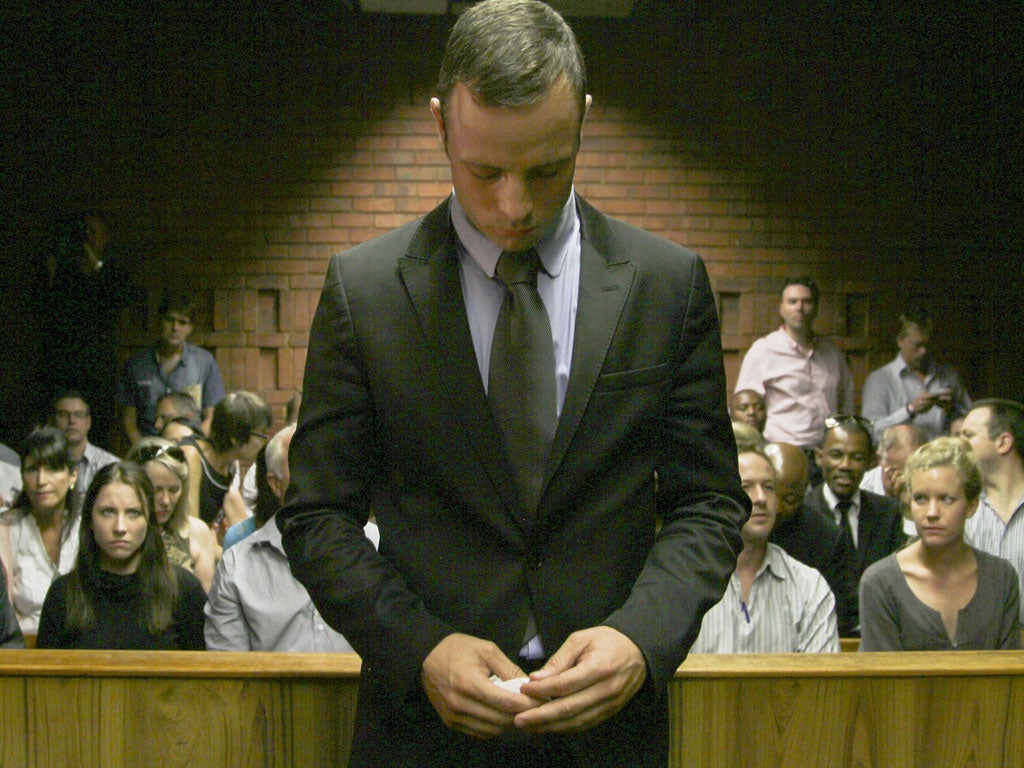
22 February: Moody’s, the credit rating agency, cuts the UK’s AAA rating to AA1, warning that it expects economic growth to be “sluggish” for the next few years.
24 February: At the Academy Awards, Daniel Day-Lewis wins best actor, Jennifer Lawrence wins best actress and Argo wins best film.
March
5 March: Hugo Chavez, president of Venezuela, dies at the age of 58. He had been ill with cancer for over a year.
7 March: Vicky Pryce, ex-wife of former cabinet minister Chris Huhne, is found guilty of perverting the course of justice in connection with taking her husband’s speeding points a decade earlier. The couple are later jailed for the offence.
8 March: UN Security Council passes strict new sanctions against North Korea, following a nuclear test conducted by the state the previous month. China is actively involved in drafting the sanctions. Three days later, North Korea announces its withdrawal from the 60-year-old armistice with South Korea, which ended the Korean War in 1953.
13 March: Cardinal Jorge Mario Bergoglio, from Argentina, is elected as the new Pope. Bergoglio, 76, is the Roman Catholic Church’s 266th pontiff – but the first from Latin America.
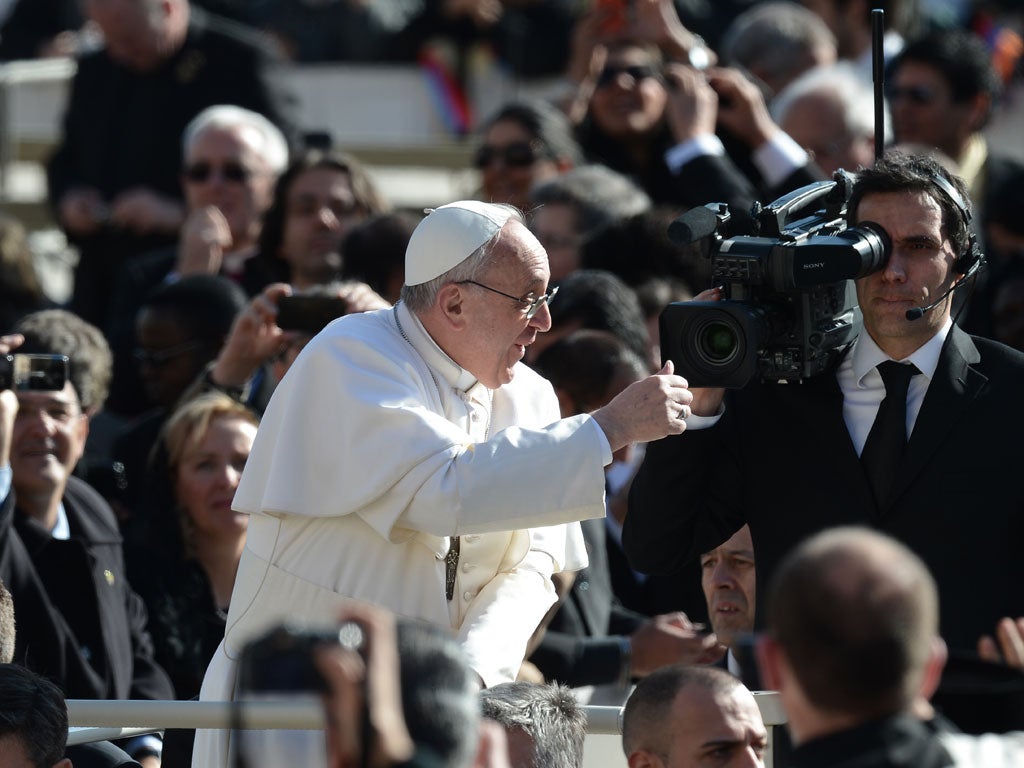
15 March: A High Court ruling backs the Government on nine out of 10 points in a complex case whose outcome, according to the rail minister, effectively gives a “green light” to the controversial HS2 high-speed rail scheme.
24 March: Cyprus is offered a $13bn bailout by the European Union and International Monetary Fund. The terms of the rescue require Cyprus to raise $7.5bn by taxing bank deposits.
26 March: The acquittal on appeal of Amanda Knox for the murder of Meredith Kercher is overturned by Italy’s supreme court. Knox, 25, was convicted of the murder in 2007 bu acquitted in October 2011. A new appeal hearing is expected in early 2014.
April
1 April: Kim Jong-un announces plans to expand North Korea’s nuclear arsenal, in defiance of UN warnings.
1 April: Government instigates new benefits caps and under-occupancy penalty. Widely referred to as the “bedroom tax”, the new penalty sees tenants incur deductions to their housing benefits should they have spare (“under-occupied”) rooms – a 14 per cent deduction for a single spare room. The tax will affect more than 600,000 homes nationally and is met with public opposition and criticism.
8 April: Baroness Thatcher, prime minister from 1979 to 1990, dies aged 87 following a stroke. The UK’s only woman prime minister, Lady Thatcher won three general elections as Conservative leader.
14 April: Former bus driver Nicolas Maduro becomes Venezuelan president.
15 April: Two pressure cooker bombs are detonated near the finish line of the Boston marathon, killing five people and injuring a further 264.
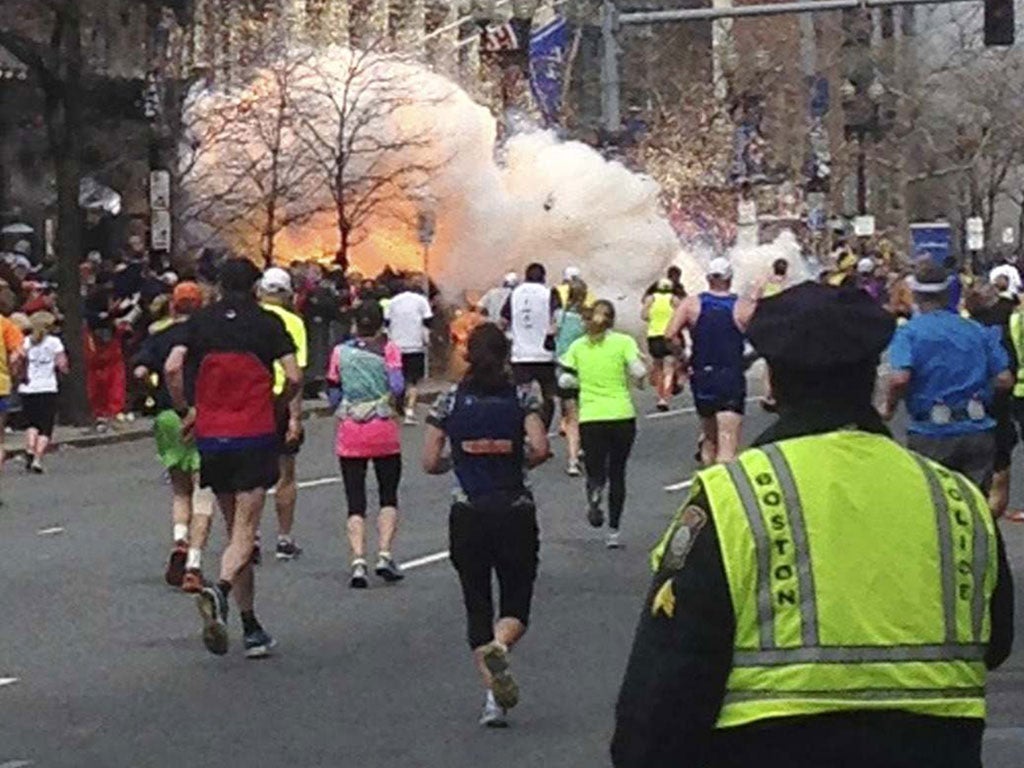
17 April: A full ceremonial service for Lady Thatcher, partly funded by the state, is held at St Paul’s cathedral.
18 April: The FBI identifies brothers Dzhokhar and Tamerlan Tsarnaev as Boston marathon bombing suspects. Tamerlan dies following a shootout with police on 19 April; Dzhokhar is captured later that evening.
24 April: Rana Plaza, an eight-storey commercial building, collapses in Dhaka, Bangladesh, killing 1,129 people and injuring a further 2,515. The factory produced clothing for major brands such as Primark and Walmart, among others.
May
1 May: The Coronation Street actor William Roache, 81, is arrested on a rape charge dating back to the 1960s.
2 May: James McCormick, 57, is jailed for selling fake bomb detectors to the UN and to Iraqi security forces. The units, based on a £13 novelty golf ball finder, netted McCormick a £60m profit.
3 May: The UK Independence Party performs unexpectedly well in local elections for 34 English councils, gaining 139 seats. UKIP leader Nigel Farage claims the results signify a “sea-change in British politics”.
6 May: Amanda Berry escapes from a house in Cleveland, Ohio, whose owner Ariel Castro, has been holding her captive since 2003. Two other women and a child are later released. (Their captor will be jailed for life in July, hanging himself a month later.)
8 May: Sir Alex Ferguson retires as Manchester United manager.
14 May: Angelina Jolie reveals that she had a double mastectomy after a BRCA1 gene test revealed that she had an 87 per cent chance of breast cancer.
15 May: Researchers at Oregon Health & Science University describe the creation of human embryonic stem cells by cloning.
20 May: A tornado with winds of up to 295mph strikes Moore, Oklahoma, killing 23 people and injuring a further 377. The tornado is thought to have destroyed 1,150 homes and caused damage estimated at $2bn (£1.2bn). President Obama declares a major disaster area in the state.
22 May: Lee Rigby, a Drummer of the Royal Regiment of Fusiliers, is killed near the Royal Artillery Barracks in Woolwich, southeast London. He is knocked down with a car, then attacked with knives and cleavers in an attempt to decapitate him. His two assailants, Michael Adebolajo and Michael Adebowale, are wounded by police gunfire before being arrested.
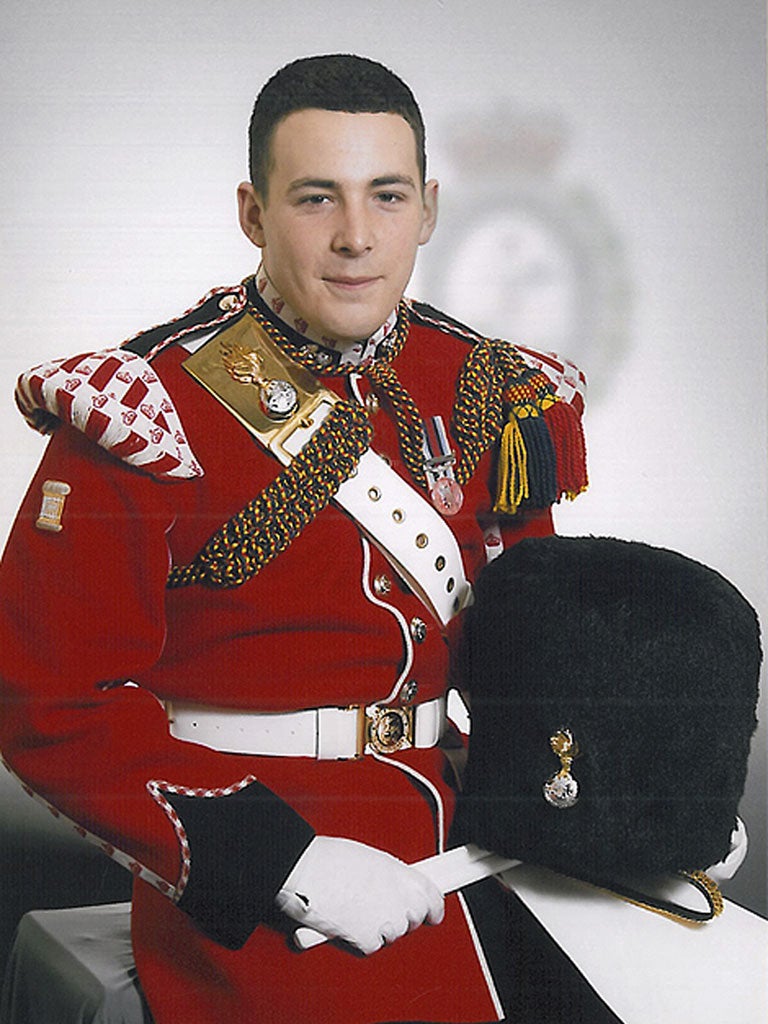
24 May: High Court rules that a tweet in 2012 about Lord McAlpine by Sally Bercow was libellous. The Speaker’s wife will eventually pay £15,000 in damages.
25 May: Bayern Munich win the Champions League.
30 May: Michael Adebowale is charged with the murder of Lee Rigby; Michael Adebolajo is charged on 1 June.
31 May: Patrick Mercer MP resigns from the Conservative party after he is embroiled in a “cash for questions” scandal. A joint investigation by the Daily Telegraph and Panorama shows him apparently offering to lobby on behalf of the Fiji regime in return for payment.
June
6 June: Leaked details of the NSA surveillance programme are published.
PowerPoint slides which appear to show that the US’s National Security Agency (NSA) has direct access to the servers of major companies including Apple, Google, and Microsoft are published by The Guardian and The Washington Post. Subsequent revelations will show how NSA pays major tech companies to bypass encryption and other privacy controls to access supposedly secure user information.
7 June: A US drone attack kills at least seven people in the village of Shokhel in North Waziristan, a tribal area of Pakistan close to the Afghan border.
9 June: Edward Snowden, a 29-year-old a former employee of Booz Allen Hamilton, which provides consulting services to the US government, reveals himself as the source of the NSA leaks. He has taken refuge in Hong Kong.
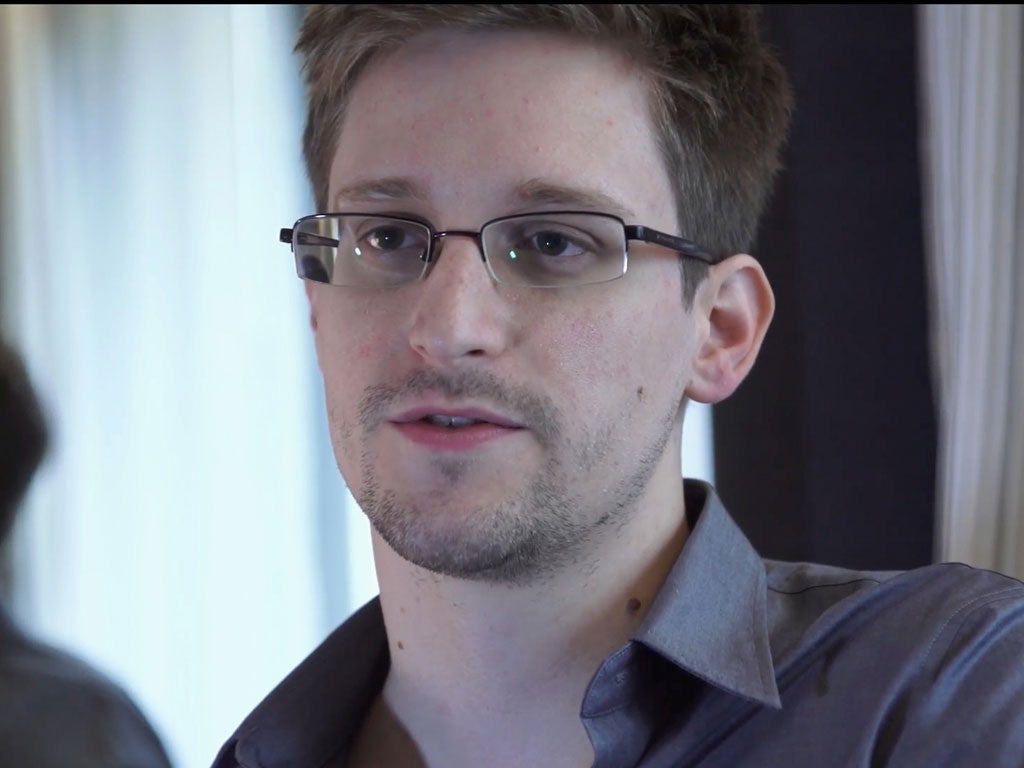
16 June: Photographs are published that appear to show Charles Saatchi grasping his wife Nigella Lawson violently by the neck outside a Mayfair restaurant. Plans for a divorce are announced shortly afterwards.
17-18 June: UK hosts G8 summit at Lough Erne in County Fermanagh.
21 June: Edward Snowden is charged by the United States with espionage, theft of government property, unauthorised communication of national defence information and wilful communication of classified communications intelligence. Two days later he arrives in Russia.
22 June: The Independent begins to expose the blue chip hacking scandal, revealing that in 2008 the Serious Organised Crime Agency investigated the use of dubious private investigators by more than 100 top City firms, many of them involved in finance, accountancy or law.
26 June: Julia Gillard, Australia’s first female prime minister, is forced to step down after a ballot by Labor MPs installs Kevin Rudd as party leader.
30 June: Huge protests calling for the resignation of President Mohamed Morsi take place across Egypt. Protestors numbering in their millions accuse Morsi of failing to tackle Egypt’s economic and security problems since taking power in 2012.
July
1 July: Mark Carney takes over as Governor of the Bank of England.
3 July: President Mohamed Morsi is deposed in a military coup. The head of Egypt’s armed forces, Abdel Fattah el-Sisi, announces Morsi’s fall on national television. A “road map” is outlined and consists of the provisional suspension of the constitution, installing Adly Mansour as acting president pending a presidential election and establishing a technocratic government.
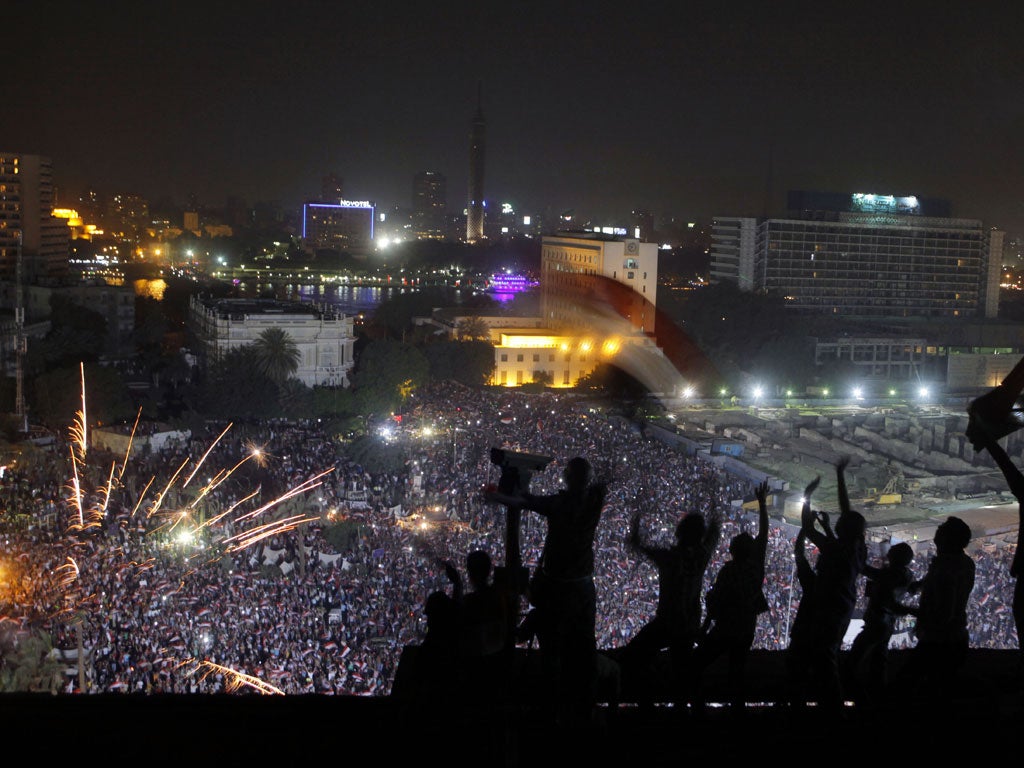
3 July: Labour suspends the Falkirk branch of its party over what Ed Miliband calls “serious issues” relating to alleged irregularities in its selection procedures. Two days later, Miliband refers the row to the police.
4 July: Scotland Yard claims to have found new evidence and new witnesses in the Madeleine McCann case. Following a two year, £5m review into the case, investigators say they are convinced that Madeleine, then three, was abducted from the family’s holiday apartment in Praia da Luz, southern Portugal, in 2007. No evidence of murder has been found. Thirty-eight new suspects have been identified.
6 July: Forty-seven people are killed after a runaway train carrying crude oil is derailed and explodes in Quebec, causing a fireball that wipes out much of the town of Lac-Mégantic.
7 July: Andy Murray defeats Novak Djokovic to become the first British man to win Wimbledon since 1936.
11 July: The lower house of the Irish parliament passes the Protection of Life During Pregnancy Bill.
12 July: The Prime Minister is among the mourners at a military funeral for Lee Rigby in Bury, Greater Manchester.
13 July: George Zimmerman is found not guilty of charges of second-degree murder and manslaughter in relation to the shooting of 17-year-old Trayvon Martin in Sanford, Florida. The shooting took place on 26 February 2012, but, controversially, Zimmerman was not initially charged with a crime because of Florida’s “stand-your-ground” law.
17 July: Same-sex marriages are legalised in England and Wales, after the Marriage (Same Sex Couples) Act 2013 receives Royal Assent. Such marriages will begin to go ahead in March 2014.
22 July: Prince George of Cambridge is born to the Duke and Duchess of Cambridge. He is the sole grandson of the Prince of Wales, and is third in line to succeed Queen Elizabeth II.
24 July: At least 78 people are killed near Santiago de Compostela, in the worst train crash in Spanish history.
August
1 August: Edward Snowden is granted a one-year temporary political asylum in Russia.
5 August: Amazon chief executive Jeff Bezos purchases The Washington Post for $250m.
5 August: The world’s first bovine stem cells lab-grown burger is cooked and eaten at a news conference in London. Physiologist Mark Post of Maastricht University created the burger in £217,000 project backed by Google co-founder Sergey Brin.
6 August: Michaella McCollum Connolly and Melissa Reid, from Northern Ireland and Scotland respectively, are arrested on suspicion of smuggling cocaine at Lima airport, Peru.
14 August: In what the Human Rights Watch describe as “the most serious incident of mass unlawful killings in modern Egyptian history”, supporters of ousted President Morsi are massacred by the security services, after two pro-Morsi camps in Cairo are cleared. The Egyptian health ministry figures puts the death toll of the attacks at 638; others count the dead in thousands. The massacre provokes violent outbursts in other cities, and a month-long state of emergency is declared.
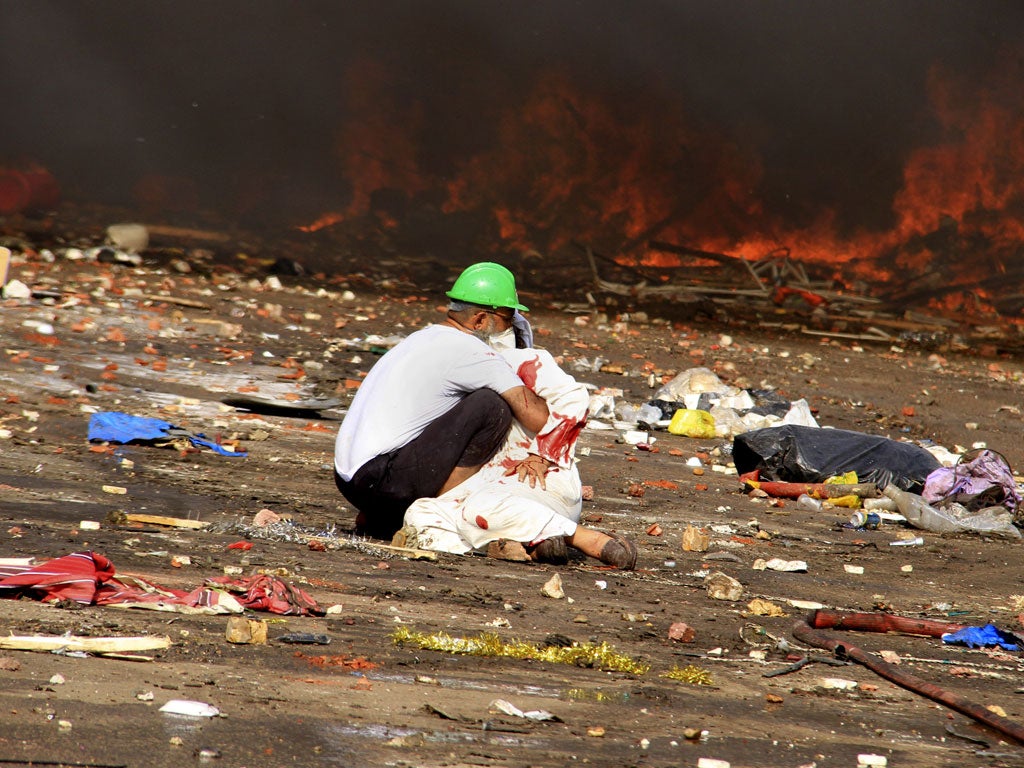
21 August: Chelsea (formerly Bradley) Manning is sentenced to 35 years imprisonment for handing confidential government information to the WikiLeaks site.
21 August: Around 1,429 people (according to US estimates), including many children, are killed in chemical attacks in the suburbs of Damascus, apparently involving sarin gas. Opposition groups blame the Assad regime. In the week that follows, as more details emerge, John Kerry, the US Secretary of State, condemns the attacks as a “moral obscenity” and President Obama threatens limited military strikes. David Cameron pledges British support, subject to parliamentary approval.
27 August: The controversial and much-debated badger cull – whose backers claim that it will reduce the incidence of bovine TB – begins in Somerset and Gloucestershire.
29 August: The House of Commons, recalled four days early to debate the matter, defeats the Government motion backing military intervention in Syria by 285 votes to 272.
September
4 September: The US Senate Foreign Relations Committee backs military action against Syria.
6 September: Following an internal inquiry, Labour climbs down in its row with its Falkirk branch, stating that “No organisation or individual has been found to have breached the rules as they stood at the time”.
9 September: After an off-the-cuff remark by John Kerry suggesting that US military strikes on Syria might yet be averted, Russia makes a diplomatic intervention that will lead within days to a provisional agreement that Syria will dismantle its chemical arsenal under international supervision.
19 September: Hassan Rouhani, President of Iran, writes an article in The Washington Post which seems to herald a dramatic thaw in his nation’s relationship with the West.
19 September: A group of Greenpeace activists protesting against Russian oil drilling are arrested after the Russian authorities board their vessel in the Barents Sea. The activists are taken into custody and become known as “The Arctic 30”. An international campaign for their release begins.
20 September: Godfrey Bloom steals Nigel Farage’s thunder at the Ukip conference with a bizarre outburst about “sluts”. He is later expelled from the party.
21 September: Al-Shabaab militants attack the Westgate shopping centre in Nairobi. Sixty-two people are killed and at least 170 are wounded.
25 September: Ed Miliband, speaking at the Labour party conference, vows to freeze energy prices.
26 September: The UN Security Council agrees a resolution that formally requires Syria to hand over its chemical weapons.
27 September: The UN’s Inter Governmental Panel on Climate Change (IPCC) declares that the theory of man-made global warming is “95 per cent likely”.
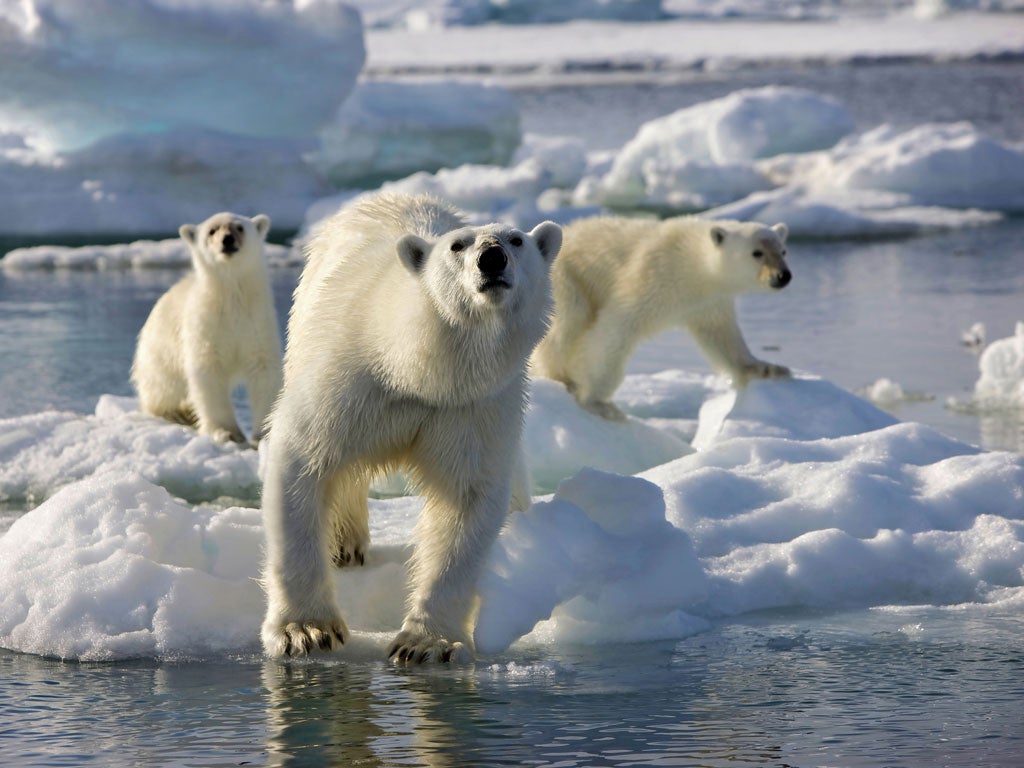
28 September: Ed Miliband is embroiled in a row with the Daily Mail after it describes his late father as “the man who hated Britain”.
October
3 October: At least 359 people die when a boat carrying migrants from Libya sinks off the Italian island of Lampedusa. Overcrowding and a botched attempt to summon help by lighting a fire are said to be among the causes. Eight days later, at least 34 people die in a similar wreck.
10 October: Peter Higgs and Francois Englert win the Nobel Prize in Physics. The physicists are honoured for their discovery of the Higgs boson (or “God Particle”). The Higgs boson is crucial to theories concerning the mass and diversity of particles in the universe; its existence was confirmed at the Large Hadron Collider at CERN, Switzerland.
10 October: The discovery of a drug-like compound which halts brain cell death in mice is hailed as a breakthrough in the quest for a potential cure for Alzheimer’s disease.
11 October: The Nobel Peace Prize is awarded to the Organisation for the Prohibition of Chemical Weapons.
15 October: First trading in the newly issued shares in the Royal Mail. The issue is heavily oversubscribed, pushing valuation well over the forecast £3.3bn.
16 October: One night before a debt ceiling deadline that could have pushed the US into default, the US House and Senate approve a bill to fund the government until early 2014.
17 October: George Osborne announces that the UK will allow Chinese companies to invest in the British nuclear industry. The first major deal, also involving the French-owned EDF energy, is for a new £14bn plant at the Hinkley C site in Somerset.
20 October: New South Wales declares a state of emergency after Australian bushfires destroy 200 homes in the region, killing two people.
21 October: Airports and schools in northeastern China are forced to close by severe air pollution in the region. In the city of Harbin, visibility has been reduced to 20 yards by the smog.
22 October: Le Monde newspaper claims that the NSA spied on French diplomats, both in Washington and at the UN.
23 October: The owners of the Grangemouth oil refinery in central Scotland announce its closure, due to an industrial dispute. The decision is later reversed after trade unionists back down.
28 October: The biggest trial into phone hacking allegedly conducted by the now-defunct News of the World begins at the Old Bailey in London. Rebekah Brooks and Andy Coulson, former editors of the tabloid, are among the eight defendants, who are charged with a range of offences including conspiring to access voicemail messages illegally.
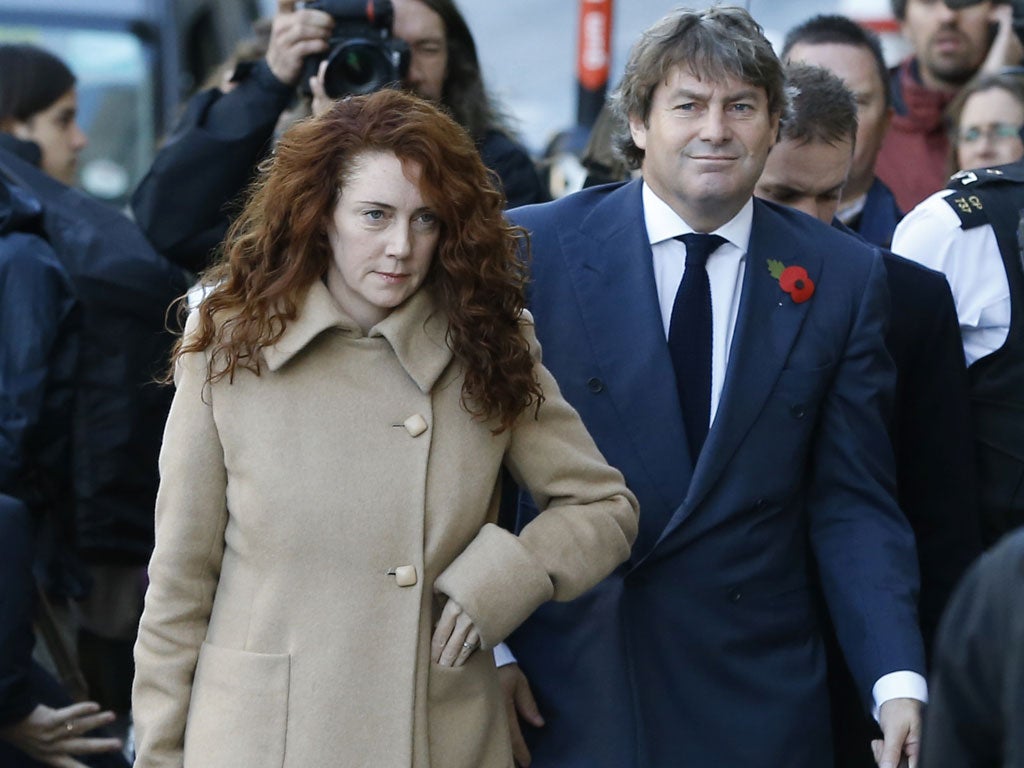
November
2 November: A major storm causes extensive damage across southern England. The strongest gust, of 99mph, is recorded on the Isle of Wight.
3 November: It emerges that three Police Federation representatives accused of giving misleading accounts of a meeting with Andrew Mitchell MP about the “Plebgate” incident will be investigated by the Independent Police Complaints Commission.
6 November: BAE Systems announces it is cutting 1,775 jobs, resulting in the end of shipbuilding in Portsmouth.
8 November: Around 6,000 people are killed as Typhoon Haiyan, the strongest storm ever recorded at landfall, hits the Philippines. Nearly 2 million people lose their homes, and more than 6 million are displaced.
12 November: Three Studies of Lucian Freud, by Francis Bacon, sells for a record $142.4m at auction.
17 November: Paul Flowers, Methodist minister and former chairman of the troubled Co-operative Bank, is caught in a newspaper sting that allegedly shows him buying crystal meth and crack cocaine. The scandal breaks barely two weeks after his testimony to the Treasury Select Committee revealed an alarming ignorance about the bank’s finances.
20 November: The first members of the Arctic 30 are released on bail.
21 November: Three women are freed from a house in south London, reportedly after “30 years of slavery”: one is said to have spent her entire life in captivity. The house is associated with a sect of Maoist extremists. A man and a woman are bailed until January.
24 November: Following lengthy negotiations with the US and other world powers, Iran agrees to limit its nuclear development programme.
26 November: Lostprophets frontman Ian Watkins pleads guilty to child sex charges at Cardiff Crown Court.
26 November: Alex Salmond, Scotland’s First Minister, unveils the Scottish National Party’s independence blueprint.
27 November: The Italian parliament votes to expel former prime minister Silvio Berlusconi, following his conviction for tax fraud.
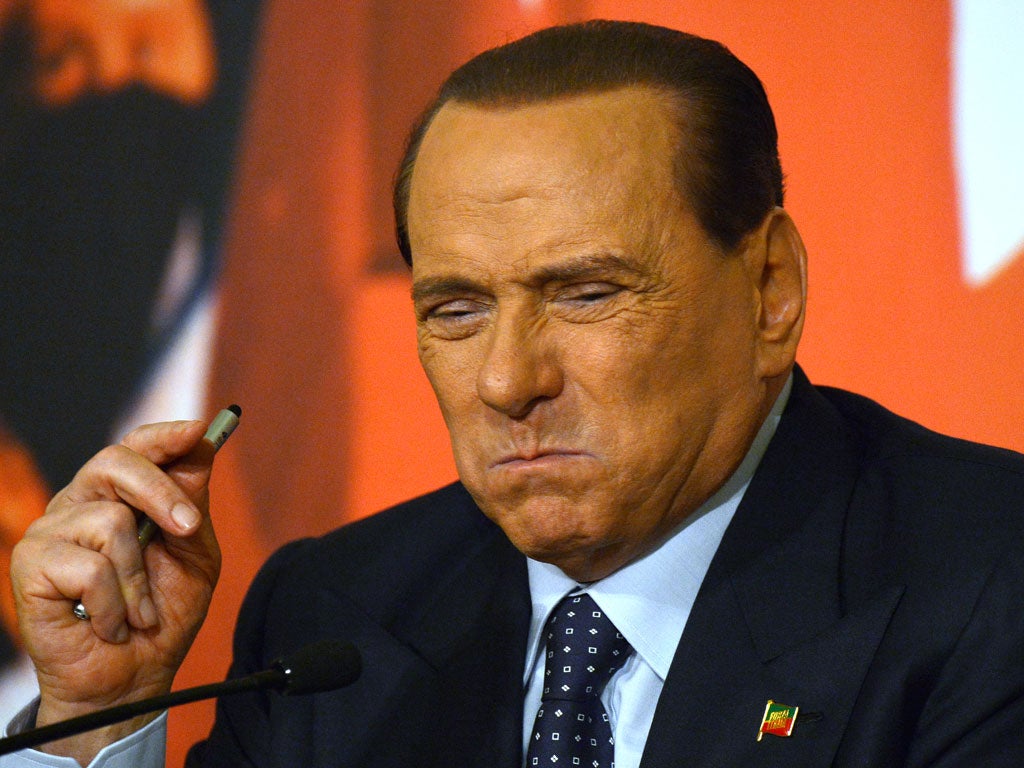
27 November: The fraud trial begins of Elisabetta and Francesca Grillo, former personal assistants to Nigella Lawson and Charles Saatchi.
29 November: Trial opens of Michael Adebolajo and Michael Adebowale, charged with the murder of Lee Rigby.
29 November: Ten killed and many more injured after a police helicopter crashes into the Clutha bar in Glasgow.
December
3 December: A pioneering study shows physical differences in structure of male and female brains.
5 December: Nelson Mandela, South Africa’s ex-president, dies, aged 95.
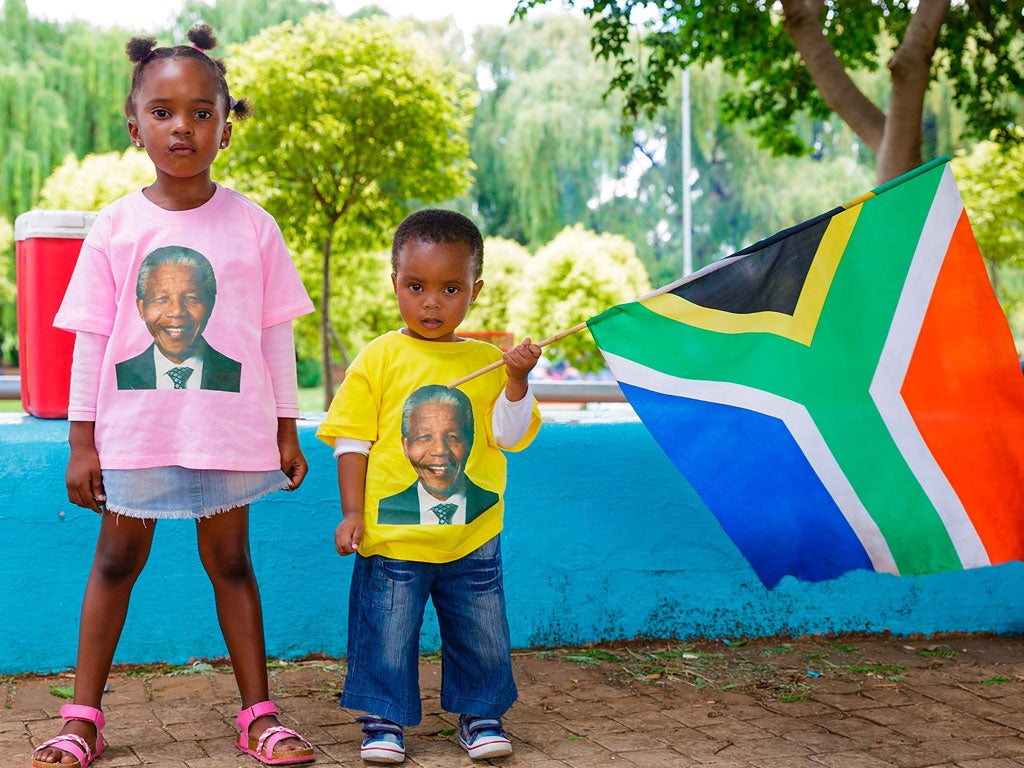
5-6 December: Thousands of homes are evacuated in East Anglia to escape the biggest tidal surge in 60 years.
6 December: France sends troops to the Central African Republic on a UN-backed peace-keeping mission.
9 December: Kim Jong-un’s uncle, Jang Song-Thaek, is removed from power and executed.
10 December: World leaders attend a memorial ceremony for Nelson Mandela in Johannesburg.
15 December: Nelson Mandela is buried at the village of Qunu.
16 December: UN makes its biggest ever appeal, for £4bn aid for Syria.
17 December: Michaella McCollum Connolly and Melissa Reid are jailed for six years in Peru for drug smuggling.
18 December: Ronnie Biggs, the Great Train Robber, dies, aged 84.
19 December: Michael Adebolajo and Michael Adebowale convicted of the murder of Fusilier Lee Rigby.
19 December: 92 injured in ceiling-collapse at London’s Apollo Theatre.
20 December: Grillo sisters cleared of defrauding Nigella Lawson and Charles Saatchi.
Join our commenting forum
Join thought-provoking conversations, follow other Independent readers and see their replies
Comments